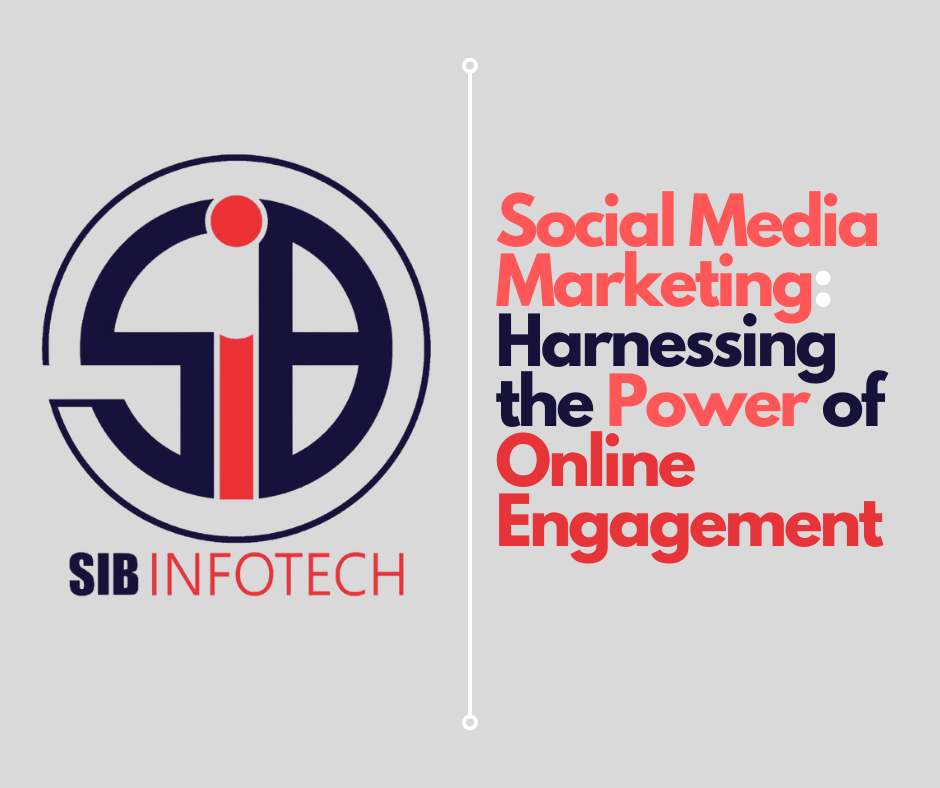In today’s interconnected world, social media has transformed the way we communicate, interact, and consume information. Social media platforms have become powerful marketing tools, offering businesses an opportunity to reach and engage with their target audience on a global scale. Furthermore, In this comprehensive article, we will explore the world of social media marketing, its benefits, key strategies, best practices, and how businesses can leverage it to achieve their marketing goals.
What is Social Media Marketing?
Social media marketing involves using social media platforms to promote products, services, or brands and engage with the target audience. Therefore, It encompasses a range of activities, including creating and sharing content, running advertising campaigns, interacting with users, and analyzing results to optimize marketing efforts.
Benefits of Social Media Marketing:
Social media marketing offers several advantages for businesses:
- a) Increased Brand Awareness: Social media platforms provide a vast audience reach, allowing businesses to increase their brand visibility and expand their reach to a global audience. Moreover, By creating engaging content and building an active presence, businesses can raise awareness of their brand and establish a recognizable online presence.
- b) Targeted Audience Reach: Social media platforms offer sophisticated targeting options, enabling businesses to reach specific demographics, interests, behaviors, and locations. Additionally, This ensures that marketing efforts are focused on reaching the most relevant audience, increasing the likelihood of engagement and conversions.
- c) Enhanced Customer Engagement: Social media provides a platform for direct communication with customers, allowing businesses to engage in real-time conversations. By actively engaging with customers, businesses can foster brand loyalty and create a positive customer experience.
- d) Cost-Effective Marketing: Compared to traditional advertising channels, social media marketing can be more cost-effective, making it suitable for businesses with varying budgets. Many social media platforms offer affordable advertising options, allowing businesses to reach a large audience without significant financial investments.
- e) Valuable Insights and Analytics: Social media platforms provide robust analytics tools that offer valuable insights into audience demographics, content performance, and campaign effectiveness. This data helps businesses make informed decisions, refine their marketing strategies, and optimize their social media efforts for better results.
- f) Opportunities for Viral Content: Social media’s viral nature allows businesses to create and share content that has the potential to reach a massive audience within a short period. Engaging and shareable content can amplify brand exposure, increase reach, and generate organic word-of-mouth marketing.
Key Strategies for Social Media Marketing:
To effectively harness the power of social media marketing, businesses should consider the following strategies:
- a) Define Goals and Target Audience: Clearly define your social media marketing goals, whether it’s increasing brand awareness, driving website traffic, generating leads, or improving customer engagement. Identify your target audience’s demographics, interests, and behaviors to tailor your content and messaging accordingly.
- b) Create a Strong Social Media Presence: Establish a consistent and recognizable brand presence across social media platforms. Customize your profiles with high-quality visuals, compelling descriptions, and relevant links. Ensure that your brand messaging aligns with your overall marketing strategy and resonates with your target audience.
- c) Develop a Content Strategy: Create a content strategy that aligns with your goals and resonates with your audience. Provide valuable, engaging, and shareable content, including articles, images, videos, infographics, and user-generated content. Tailor your content to suit each platform and leverage trending topics and hashtags to increase visibility.
- d) Engage with Your Audience: Actively engage with your audience by responding to comments, messages, and mentions. Moreover, Encourage conversations, ask questions, and seek feedback. Building genuine connections with your audience fosters trust, loyalty, and brand advocacy.
- e) Utilize Paid Advertising: Consider utilizing paid advertising options offered by social media platforms. Develop targeted campaigns that align with your goals and target audience. Therefore, Leverage advanced targeting features to reach the most relevant audience and monitor campaign performance to optimize results.
- f) Monitor and Analyze Results: Regularly monitor your social media efforts using analytics tools provided by the platforms or third-party tools. Track metrics such as engagement, reach, website traffic, conversions, and return on investment. Additionally, Analyze the data to identify trends, measure the effectiveness of your strategies, and make data-driven decisions for future campaigns.
Best Practices for Social Media Marketing:
To maximize the impact of your social media marketing efforts, consider the following best practices:
- a) Consistency: Maintain a consistent posting schedule to keep your audience engaged. Consistency helps build brand recognition and ensures that your content appears regularly in your followers’ feeds.
- b) Quality Over Quantity: Focus on creating high-quality content that provides value to your audience. Aim for content that educates, entertains, or inspires, rather than simply promoting your products or services.
- c) Visual Appeal: Utilize eye-catching visuals, such as images and videos, to capture attention and increase engagement. Ensure that your visuals are high-quality, on-brand, and optimized for each platform’s specifications.
- d) Authenticity and Transparency: Be authentic in your interactions, voice, and messaging. Engage in honest and transparent communication, building trust with your audience. Avoid using manipulative or deceptive tactics that can harm your brand’s reputation.
- e) Stay Updated and Evolve: Social media platforms constantly evolve, introducing new features, algorithms, and trends. However Stay updated with the latest developments, industry best practices, and emerging trends to ensure your strategies remain effective.
- f) Test and Iterate: Experiment with different content formats, messaging, and advertising strategies Continuously test, analyze results,
Conclusion:
Social media marketing offers businesses immense opportunities to connect with their target audience, build brand awareness, and drive meaningful engagement. Lastly, By leveraging social media platforms effectively businesses can establish a strong online presence, Thus,unlock the potential for increased brand visibility, business growth.

